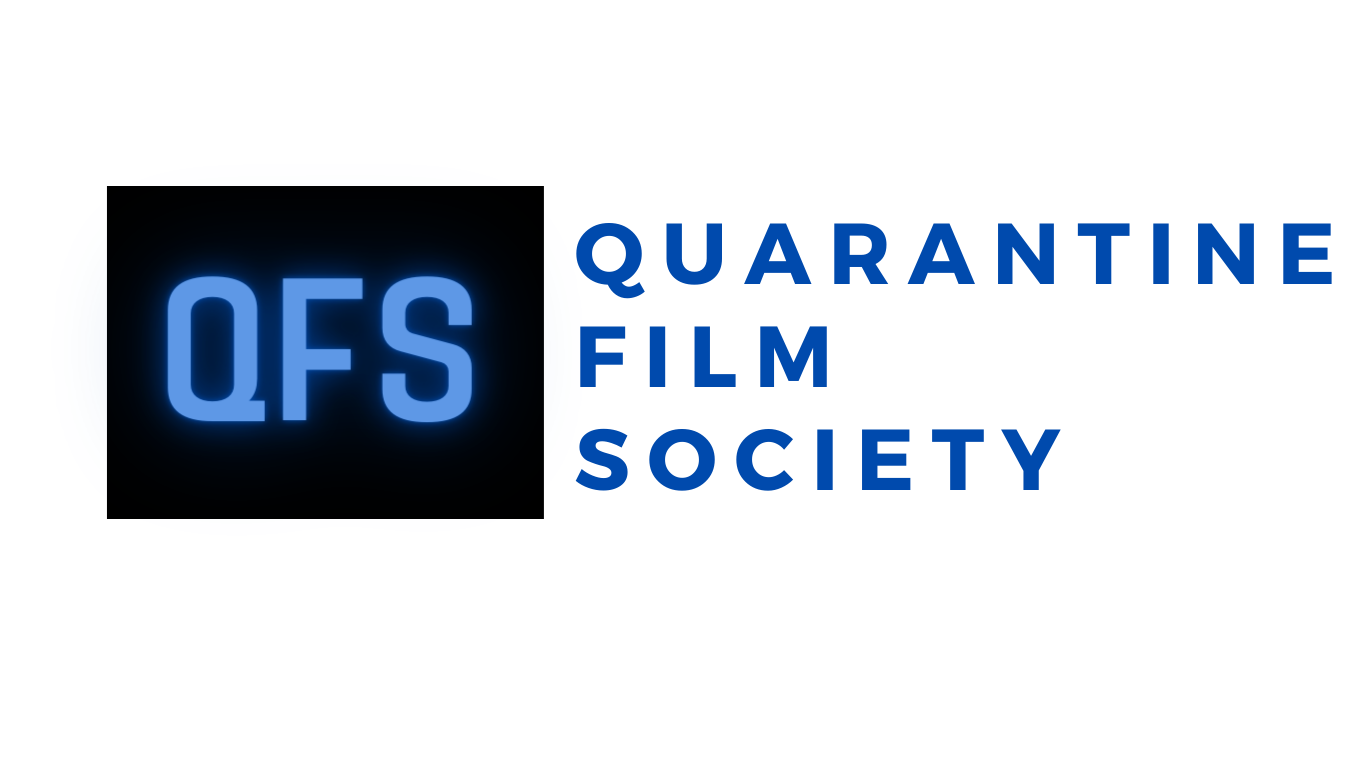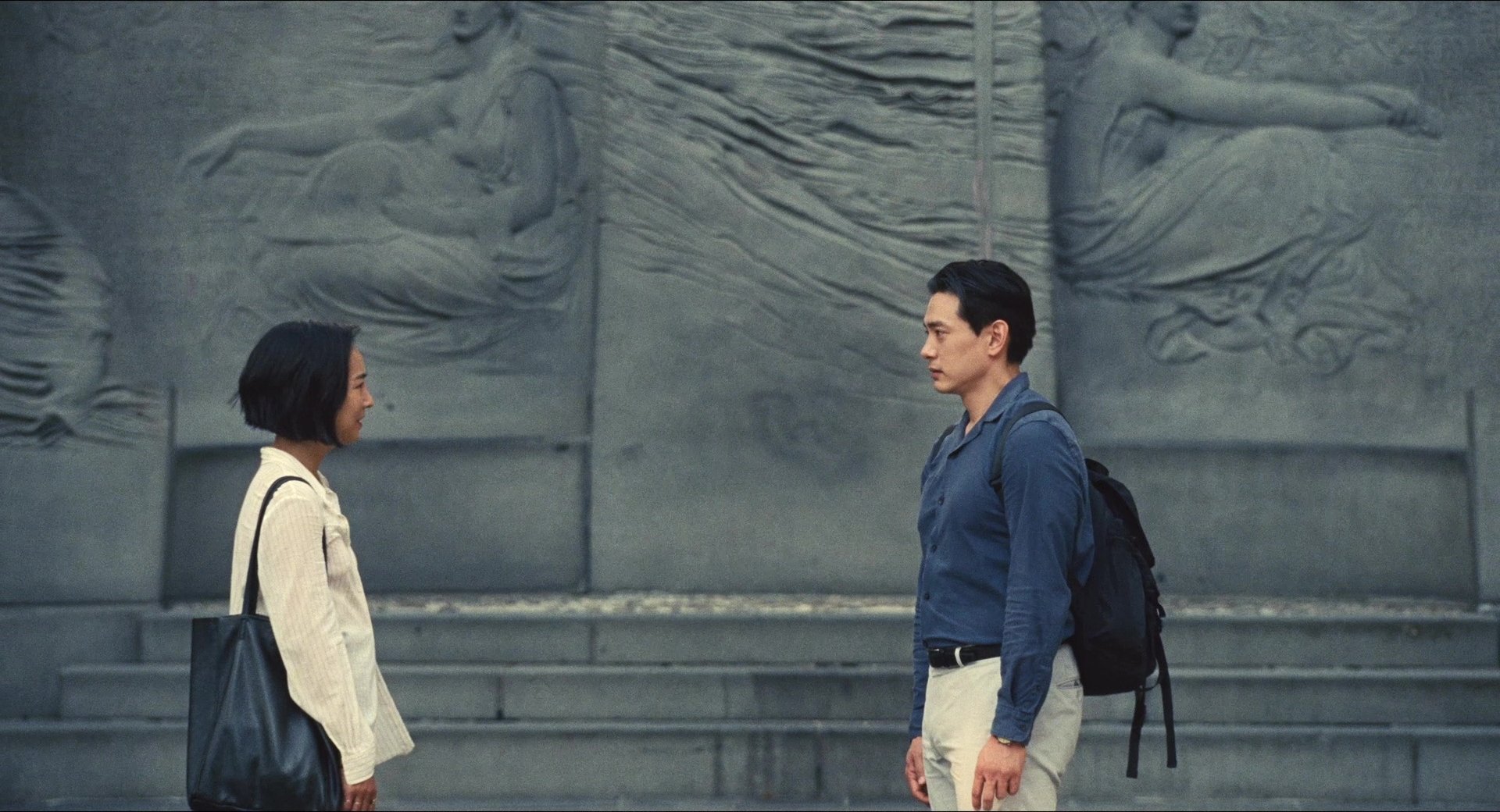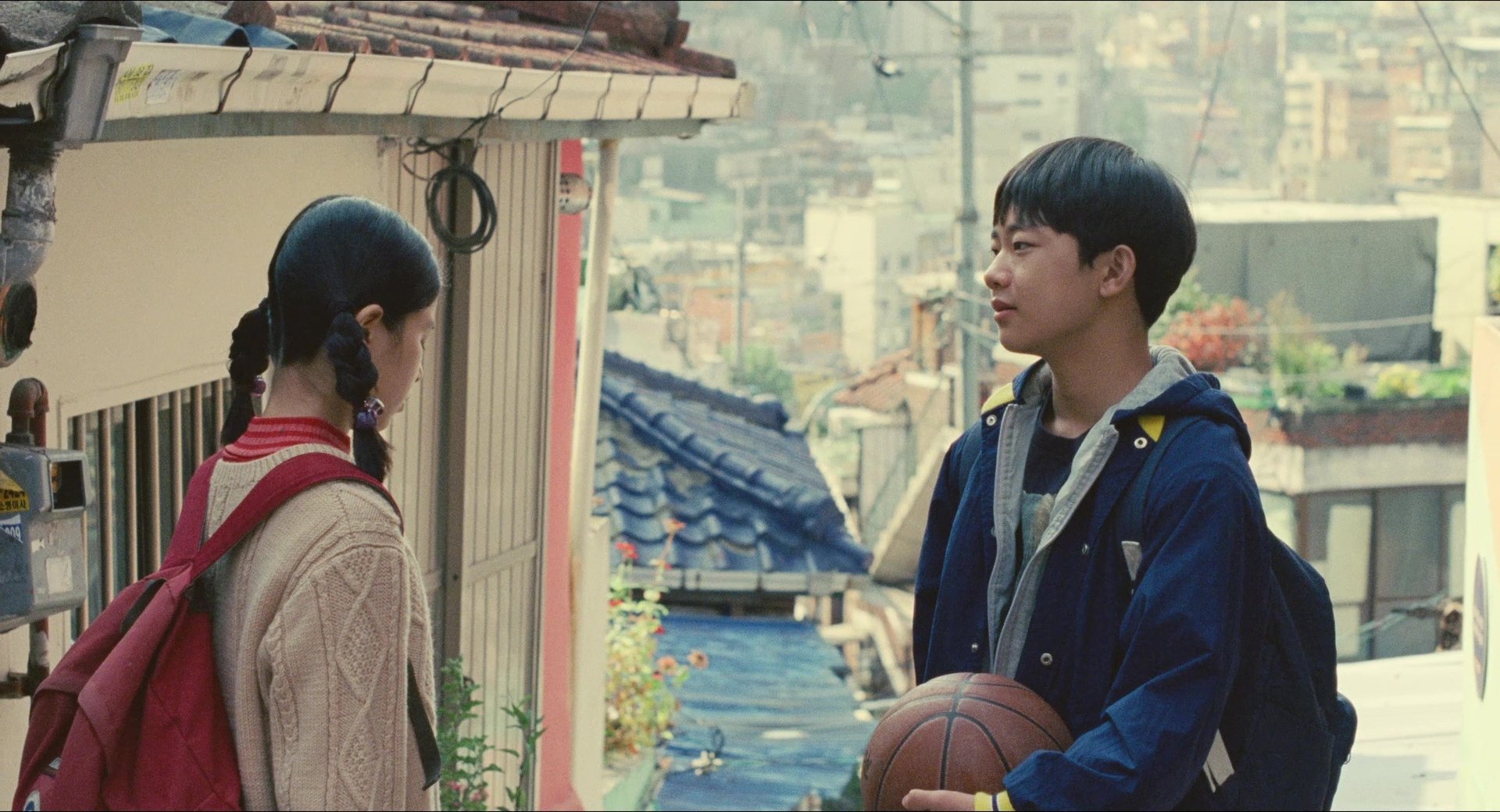Past Lives (2023)
QFS No. 134 - The invitation for February 28, 2024
What I know about this film approaches zero. I do know it’s (partly) from South Korea and that it’s Celine Song’s first film after being a staff writer on a major Amazon series. So, you know – pretty amazing, that!
But I’ve deliberately kept myself away from knowledge of the plot and was looking forward to seeing the film. This is our second selection from South Korea, the other being Bong-Joon Ho’s Memories of Murder (2003, QFS No. 112), and many more remain on my to-watch list. The South Korean film industry just keeps blasting home runs all over the place.
Join us this week if you can!
Reactions and Analyses:
There’s a shot in Past Lives (2023) that essentially tells the premise of the film in one frame. It’s early on, Na Young says goodbye to Hae Sung because her family is immigrating from South Korea. The goodbye is curt and without over-wrought emotion because, well, they’re adolescents.
Then they each walk towards their own homes – Na Young upwards on the right of the frame and Hae Sung on the left, more or less straight, away from us. This image defines, in some ways, their trajectories. It’s simple and straightforward but clear. And it definitely sets a course for the split in their lives.
When I first selected Past Lives, knowing very little about the film besides its accolades and that it’s Oscar nominated for Best Picture, I assumed this was a South Korean film. And after having seen it, I can say that it’s very much an American film, an immigrant’s tale. This splitting or fracturing of a life in divergent storylines. It could’ve been told from my parents’ perspective leaving India in the 1970s.
I brought this up in our QFS discussion and the others pointed out that this is not just an immigrant’s tale – this is the story of anyone who is forced to split from their home at a young age and has that fondness, that nostalgic remembrance, and that powerlessness to stop that fracturing the familiar. The fact that this is also true and valid illustrates how universal and accessible the story is.
Past Lives makes an argument for the simple film told with tenderness but with just the right amount of layering. The Korean concept of “in-yun” – the layers of interaction between throughout past lives – feels deliberate beyond how it’s used to describe the relationship between Hae Sung (Teo Yoo) and Na Young/Nora (Greta Lee). Perhaps in-yun is also meant to convey that the film is not as simple as it seems, that it’s layered in unseen ways (which, I’m sure, is me misinterpreting the definition of in-yun but bear with me). That there’s depth between these two childhood friends (sweethearts?) and when they reconnect later in their lives, that connection has meaning beyond how it’s been set up in the film.
The QFS group was split on the strength of this connection. For some, the childhood connection between Na Young/Nora and Hae Sung didn’t suggest a deeper connection later in life. For example, Nora claims to not exactly remember the boys name while talking on the phone with her mother, but then discovers he’s been asking about her whereabouts for a little while now.
For others in our group, their connection in childhood was enough and felt familiar – this idea of two lives, connected through family, culture, and yes, love – two people diverging but when they reconnect, it’s fated they are to be together. Or, more specifically, in-yun. Case in point: your enjoyment of this film is directly related to whether or not you believe that their relationship at the beginning is strong enough that they could reconnect so quickly over such a long span of time.
Past Lives has the ease of a simple film well told but some of the trappings of a first-time filmmaker, several of us felt (including me). For example, there’s a scene where Nora’s (non-Korean) husband Arthur (John Magaro) talks about how they met and became a couple and moved in together and got married so she could get a green card, etc. What’s missing in his description is “love.” The kind of standard American relationship story devoid of cinematic spark or romance, but realistic and familiar. He continues to then say that in this version of the story, Hae Sun – the childhood lover – returns to her life and she realizes that this is who she should’ve been with her whole life. That he, Arthur, is the villain in this story. Hae Sun is more closely suited to her culturally but also very satisfying narratively. Both Nora and Arthur are writers so this aligns with their story-telling impulses.
Now, that’s all true but … we know that already as an audience. The filmmaker seemingly hasn’t trusted us to put that all together and she has a character explain it to us. This, to me, is a significant misstep in a story otherwise hewing close to cinematic realism. The scene, also, continues and Arthur says he started to learn Korean because Nora was talking in her sleep but in Korean. He says “You dream in a language I can’t understand. It’s like there’s this whole place inside you I can’t go.”
That is beautiful. It’s poetic, it speaks to the character himself, to their relationship, to the thrust and import of that scene. The scene could have very easily started here and it would have spoken volumes. But instead we get the needless explainer. And the ending as well – there’s a version of the film that ends as soon as Hae Sung leaves, wondering if this life is actually a past life and “we are already something else to each other in our next life? Who do you think we are then?”
Again – this is beautiful poetry. One member of the group suggested that ending of the film would be stronger if it ended right here, or right after this and he gets in his airport ride and goes. Instead of the long walk with Nora back to her husband where she cries. (And this is where I offered the additional criticism of staying in a wide shot instead of seeing her face here, for that felt like a payoff to me.) Even the opening shot - there’s an unseen bar patron watching the three in the bar. We push in slowly but instead of trusting the images of these three, with only their expressions and body language to inspire our curiosity, we’re hearing a bar patron who we will never see give us a setup that our eyes would have given us without the help.
Perhaps. These are all counterfactuals and there’s an argument in conducting film criticism that one needs to focus on the film in front of them and not the alternate version in our heads. Yes, valid – but still, the fact that these questions arise are less about how we would’ve done it differently and more about a few small weaknesses in an otherwise solid, simple film.
Despite some first-time filmmaker criticisms, there are a lot of beautiful uses of visual storytelling throughout - including the use of symmetry across eras between Na Young and Hae Sung.
And in defense of the simple film – I mean “simple” not that it lacks depth or intelligence. Quite the opposite. When the filmmaker has trusted us, we’ve filled in the blanks and walked in the shoes of two people different than ourselves and went on a journey with them. As one person in our group remarked – it’s refreshing to have a film that’s only about 90-minutes, has a simple but tender story, well-acted and executed, that brings up emotions in a natural way. Not overwrought or excessive or gratuitous. (Counterexamples from this award season include Oppenheimer, 2023 and Killer of the Flower Moon, 2023). I believed I added “inoffensive” as a way of describing Past Lives and, once again, I meant it as a compliment. There are no subplots, no side character, no stretching for meaning. It’s all there. Simple.
Whether that simplicity was effective or not, we all were in agreement, however, on this one thing – we are grateful that a movie like this is still being made, is receiving accolades, and that a lot of people have watched and enjoyed it. So consider this an endorsement of the simple film.






